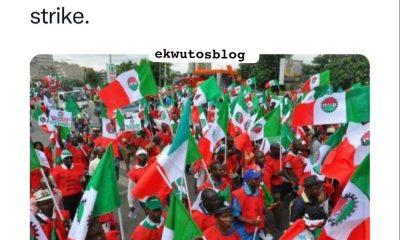Columns
CIS ELECTS OLUROPO DADA AS 13TH PRESIDENT

Columns
Plate number colours and what they indicate;
Columns
PRESIDENT TINUBU CELEBRATES REVIVAL OF PORT HARCOURT REFINERY AND DIRECTS NNPC LIMITED TO PROMPTLY REACTIVATE WARRI AND KADUNA REFINERIES
Columns
In Nigeria, overtaking a military convoy is regulated by various laws and guidelines to ensure national security, public safety, and respect for the military.
-

 Politics9 months ago
Politics9 months agoNigerian Senate passes Bill seeking the establishment of the South East Development Commission.
-

 Business10 months ago
Business10 months agoInflation hits record high of 29.90% on naira weakness
-

 Politics6 months ago
Politics6 months agoBREAKING: Federal Gov’t Offers To Pay Above N60,000, Reaches Agreement With Labour
-

 SportsNews9 months ago
SportsNews9 months agoOlympic Qualifiers 2024: CAF Confirms Dates For Super Falcons Vs Banyana Banyana
-

 Politics9 months ago
Politics9 months agoGovernor Hope Uzodinma’s New Cabinet In Imo: The Gainers, The Losers
-

 Entertainment9 months ago
Entertainment9 months agoAmerican Singer Beyonce makes history as first Black woman to top country chart
-

 Politics6 months ago
Politics6 months agoBREAKING: Organized Labour suspends strike for one week.
-

 Business9 months ago
Business9 months agoReasons we cannot sell cement below N7,000, by Dangote, Bua, Lafarge














